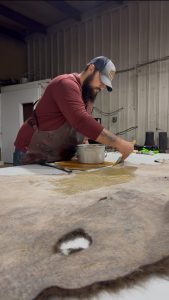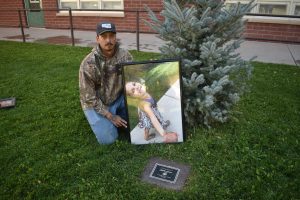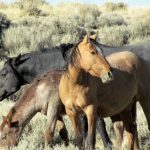A lifelong calling to serve: How Droppin Skulls Tannery is fulfilling a unique niche in Northwest Colorado
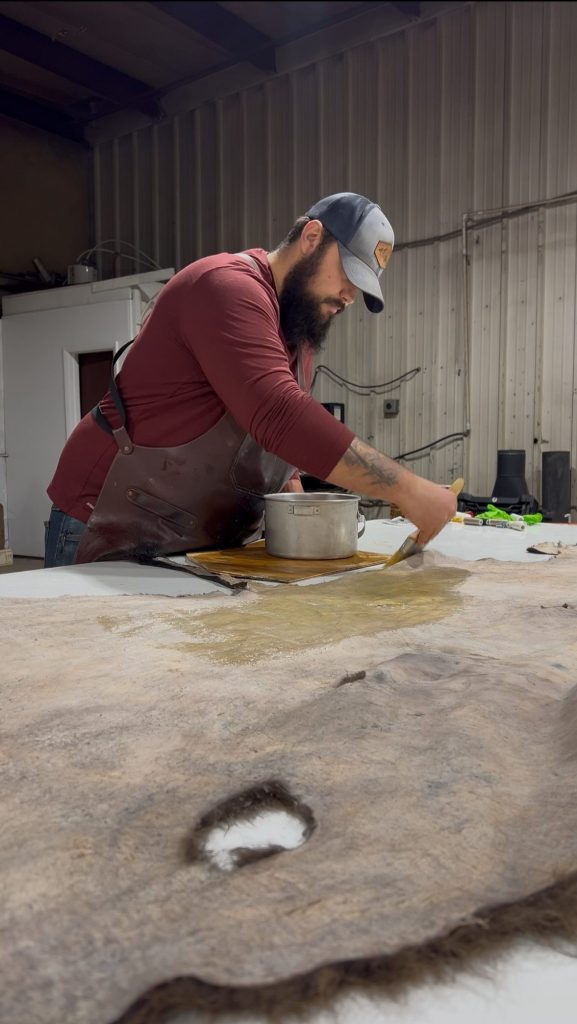
Courtesy Photo/Droppin Skulls Tannery
For most people, the word “tannery” might not stir much thought, but for Craig native Trey Gallegos, owner and operator of Droppin Skulls Tannery, it represents a lifetime of work, service and a dedication to connecting hunters with their memories in a lasting form.
Gallegos grew up in the world of outfitting under the guidance of his father, Justin Gallegos, who runs Majestic Trophy Outfitters. From the time he was 8 years old, Trey was skinning animals for clients while also learning the ropes of guiding hunters through Northwest Colorado’s big game terrain.
“I was raised as an outfitter’s son,” Gallegos said. “At a young age I was skinning animals for hunters and dipping my feet into guiding. As I got older, I started guiding myself. After I came back from the Army in 2019, I became the head guide.”
His return home from the military marked the end of one defining moment in his life and the beginning of another, both of which were centered on the idea of service and dedication.
From serving in the army to aiding his community
Gallegos served in the United States Army and was stationed at Fort Bliss, Texas. He was honorably discharged to return home and help his family, as his father’s back injuries had made it difficult for him to continue guiding. As soon as he returned, Trey stepped in to help keep the business running.
He resumed work as head guide for Majestic Trophy Outfitters, but soon found himself facing a challenge that many in Craig’s outdoor industry know well — limited off-season work and long drives to other communities in order to make ends meet. For years, he commuted to Steamboat Springs for jobs that would be put on hold during the fall hunting season. For Gallegos, that cycle became exhausting and unfulfilling.
“I needed to find a career that allowed me to move my schedule around guiding,” he said. “I was tired of being gone all the time and wanted something that would still serve the community I grew up in.”
The solution came during a conversation with Scott Moore of Mountain Man Taxidermy, who said taxidermists were waiting long periods, sometimes up to 18 months, to get the hides needed to complete their clients’ mounts. Those delays were the result of two of the nation’s largest tanneries, one in Texas and one in California, closing during COVID-19 and never reopening.
Those closures left taxidermists scrambling and created a backlog in the industry, leaving customers waiting years for finished mounts.
“I started digging into it and realized there was a huge niche that needed to be filled here locally,” Gallegos said. “We have a ton of hunting in Northwest Colorado and a lot of taxidermists who depend on the tannery process.”
Learning the trade
For the second time in his life, Gallegos dedicated himself to serving his community’s needs and enrolled at the Montana School of Taxidermy and Tanning to learn from master tanner Jeff Welch. Once he arrived, Gallegos spent more than a month studying the chemistry and craftsmanship behind tanning, learning everything from managing pH balances to building the specialized equipment which was necessary to complete his mission.
“The tanning industry is a very niche group of people,” he said. “Most of the equipment has to be built from scratch. When I came home, my dad and I built about 90 percent of what I use in the shop.”
The equipment at Droppin Skulls Tannery includes vats cut from chemical totes and large rotating barrels lined with sawdust, called tumblers, that restore color and texture to the finished leather while also drying and softening the hides.
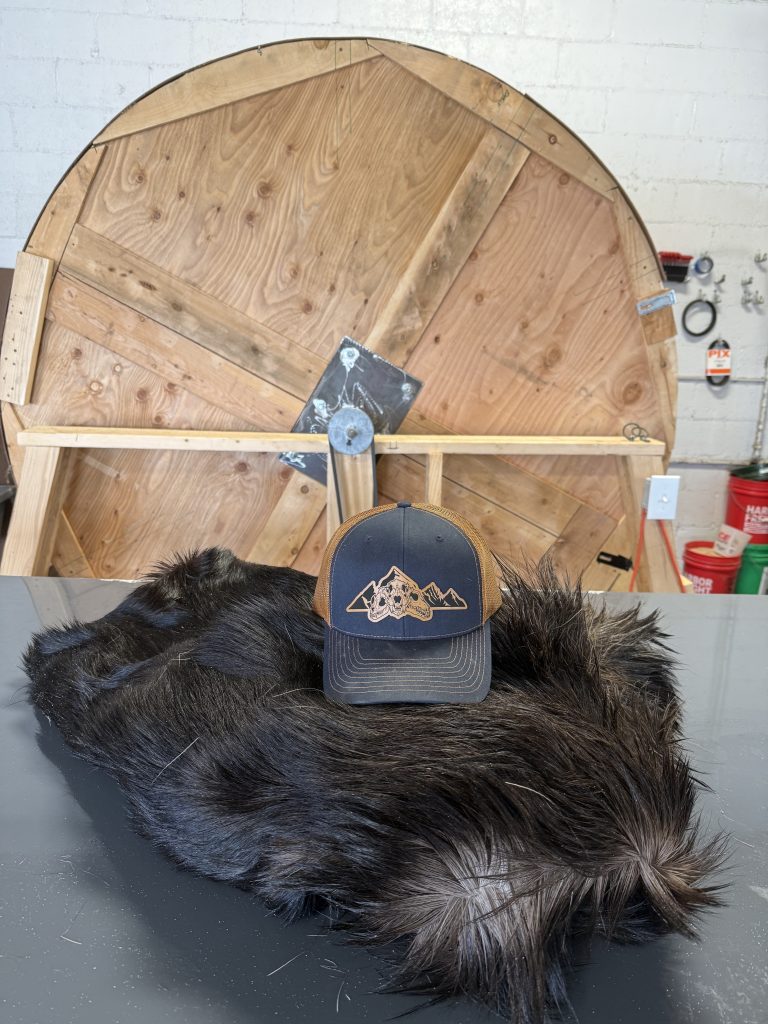
Gallegos said the process, from beginning to end, is both art and science.
He receives salted hides from local taxidermists, then rehydrates and “pickles” them in an acid and saltwater solution to kill bacteria before shaving them down to one-eighth of an inch thick, the industry standard in taxidermy. After tanning the hides for many hours, he applies oils to preserve suppleness before either freezing them for taxidermy mounts or tumbling them for soft leather use.
“We do whatever the customer needs including hair-on and hair-off, retail flats and pelts,” he said. “But right now, we’re focused mostly on supporting our local taxidermists and hunters.”
A homegrown business
Droppin Skulls officially opened in May 2024 on Ranney Street before relocating the following spring to its present home in the former CNC Auto Body building at 405 Breeze Street. Since then, the business has steadily grown, handling between 150 and 200 hides a year.
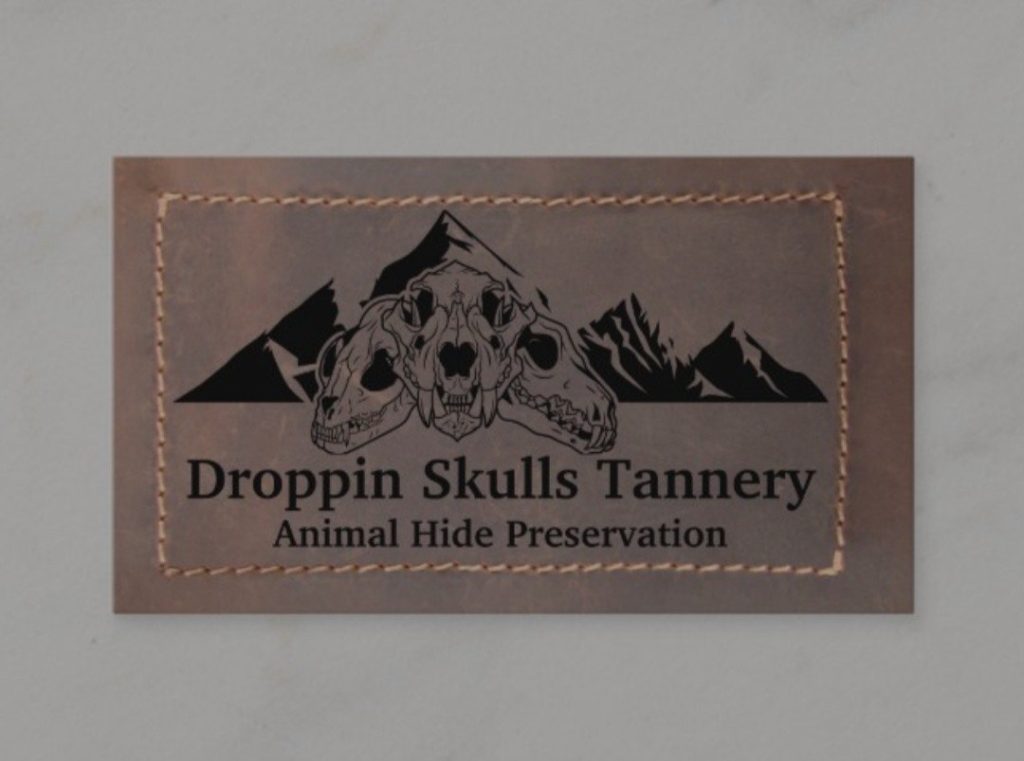
Gallegos also works closely with taxidermists throughout Northwest Colorado and along the Front Range to tailor his tanning methods to industry norms while adjusting them to meet the preferences of individual shop owners. He also takes walk-in work from local trappers, 4-H students and hunters who want to preserve hides, and thus important memories.
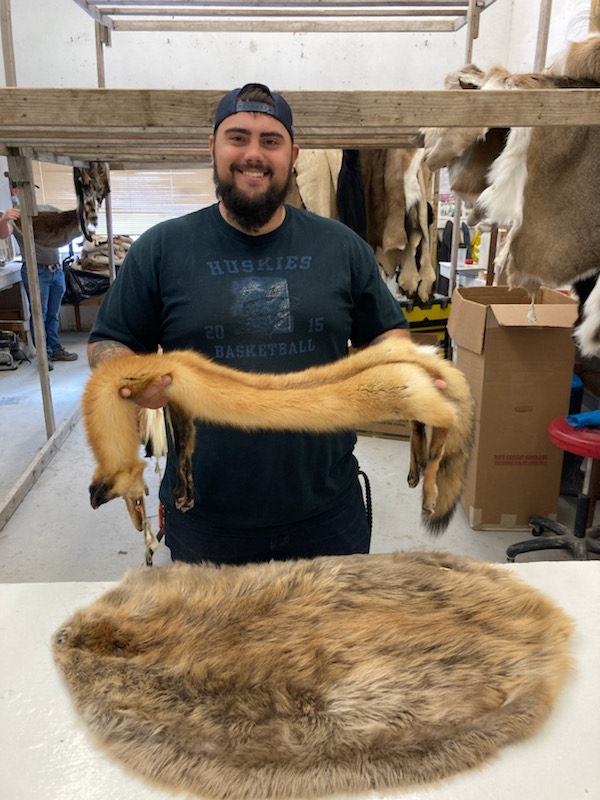
“I try to stay as local as possible,” he said. “We have such a wonderful community here, especially on the hunting side of things. These taxidermists need help getting their hides back quicker, and that makes the hunter happier.”
During hunting season, Gallegos’ days begin before sunrise and often end long after dark.
“Every morning during the season, I take the hunters out guiding,” he said. “If we don’t get anything, I come back into town from 11 to 2 to work at the tannery, and then head back out with hunting clients until dark. In between seasons, I’m here every day from about 8:30 to 5.”
Even with long hours and a schedule shaped by the unpredictability of hunting, he said the work remains deeply fulfilling.
Craftsmanship, commitment and community
Gallegos admits that the hardest part of running a tannery alongside a guiding business is the long hours and late nights needed to ensure every order meets his clients’ high standards. Despite that fact, he enjoys the sense of satisfaction that comes when he sees his work mounted and displayed, which often leads to a smile on someone’s face.
“What I love most about this business is the science and the craftsmanship,” Gallegos said. “I’m taking somebody’s memory and making it a forever thing. Whether it’s a 4-H student’s first steer or a hunter’s first bull elk, I’m helping them keep that moment alive.”
“I tanned a sheep hide for a young boy’s first hunt,” he said. “When I saw it finished on the wall at Big Cat Taxidermy, it was a sense of pride. That mount will last until that child is old and gray.”
For Gallegos, Droppin Skulls is more than a business — it’s an extension of a lifelong calling to serve, preserve and contribute to the community that shaped him.
“Ever since I was little, I told people I wanted to be a guide,” he said. “Now I get to do that and also provide something that helps our community. This tannery just fell into place, and I can’t regret a single decision. It’s been a wonderful experience bringing this service to Craig.”
For more information on Droppin Skulls Tannery, visit their Facebook page or follow them on Instagram at instagram.com/DroppinSkullsTannery.

Support Local Journalism

Support Local Journalism
Readers around Craig and Moffat County make the Craig Press’ work possible. Your financial contribution supports our efforts to deliver quality, locally relevant journalism.
Now more than ever, your support is critical to help us keep our community informed about the evolving coronavirus pandemic and the impact it is having locally. Every contribution, however large or small, will make a difference.
Each donation will be used exclusively for the development and creation of increased news coverage.

